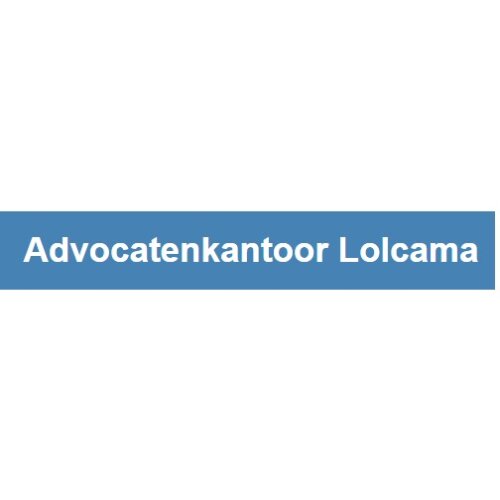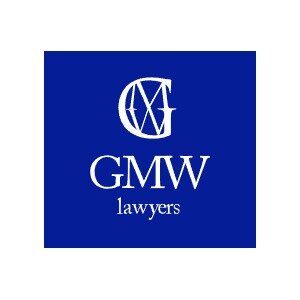Best Restructuring & Insolvency Lawyers in Netherlands
Share your needs with us, get contacted by law firms.
Free. Takes 2 min.
Or refine your search by selecting a city:
List of the best lawyers in Netherlands
Netherlands Restructuring & Insolvency Legal Articles
Browse our 1 legal article about Restructuring & Insolvency in Netherlands written by expert lawyers.
- Netherlands WHOA Guide: How Creditors Can Protect Their Rights
- The WHOA (Dutch Court Confirmation of Extrajudicial Restructuring Plans) allows companies to restructure debt without the consent of all creditors. A "cross-class cram-down" can bind dissenting classes of creditors to a plan if at least one "in-the-money" class votes in favor. Creditors have limited windows to challenge a plan, usually... Read more →
About Restructuring & Insolvency Law in Netherlands
Restructuring and Insolvency law in the Netherlands provides a legal framework for companies and individuals facing financial distress. These laws are designed to help businesses reorganize or, if necessary, wind down operations in an orderly manner while protecting the interests of creditors, employees, and other stakeholders. The Dutch insolvency system offers various proceedings, including bankruptcy (faillissement), suspension of payments (surseance van betaling), and the Dutch Scheme (Wet Homologatie Onderhands Akkoord or WHOA), which enables companies to restructure debts without full bankruptcy proceedings.
Why You May Need a Lawyer
Navigating restructuring and insolvency matters can be complex and stressful. Here are common situations where legal assistance is crucial:
- You are facing financial difficulties and wish to understand your options for restructuring debts.
- Your creditors are taking legal action, or you have received a demand for payment that you cannot meet.
- You want to file for bankruptcy, or your business is being petitioned into bankruptcy by a creditor.
- You need to safeguard personal assets while resolving business debts.
- You have questions about your rights and obligations as a creditor in an insolvency proceeding.
- You are involved as an employee, supplier, or business partner of a company undergoing insolvency proceedings.
- You wish to use the WHOA to propose a restructuring plan to creditors and shareholders.
An experienced lawyer can clarify your legal position, negotiate with creditors, represent you in court, and help you avoid costly mistakes.
Local Laws Overview
Dutch Restructuring & Insolvency laws are primarily governed by the Dutch Bankruptcy Act (Faillissementswet). The three main procedures are:
- Bankruptcy (Faillissement): Intended for situations where a debtor can no longer pay debts. All assets are liquidated to pay creditors, with a court-appointed bankruptcy trustee overseeing the process.
- Suspension of Payments (Surseance van Betaling): Allows temporarily solvent companies to reach a settlement with creditors and attempt to avoid bankruptcy. The court appoints an administrator to oversee the process.
- Dutch Scheme (WHOA): This relatively new procedure enables companies to negotiate debt restructuring with creditors. If accepted by a majority of creditors, the court can approve the plan, making it binding for all.
These procedures exist alongside legal protections for employees, creditor priority rules, and strict obligations regarding directors' conduct before and during insolvency.
Frequently Asked Questions
What is the difference between bankruptcy and suspension of payments?
Bankruptcy involves the liquidation of all assets to pay creditors, typically when insolvency is unavoidable. Suspension of payments is a temporary protection allowing businesses to reorganize and negotiate with creditors while maintaining control over operations.
How does the WHOA help companies in financial distress?
The WHOA lets companies propose restructuring plans to creditors and shareholders without needing everyone’s consent. If enough creditors agree, the court can confirm the plan, making it binding for dissenting parties as well.
Can individuals as well as companies file for insolvency?
Yes, both individuals and companies can seek insolvency procedures under Dutch law, though the WHOA and suspension of payments are primarily designed for businesses.
What role does a bankruptcy trustee play?
A court-appointed bankruptcy trustee takes control of the debtor’s assets, manages the insolvency estate, investigates financial affairs, and distributes proceeds to creditors according to legal priorities.
Are directors personally liable for a company’s debts?
Directors are generally not personally liable. However, if they are found to have mismanaged the company or acted negligently, they may be held personally responsible for certain debts.
Do employees lose their jobs immediately if the company goes bankrupt?
Not always. Employees’ contracts usually continue for a period after bankruptcy is declared. Wages owed may be covered by the Dutch Employee Insurance Agency (UWV) under specific circumstances.
What is the order of payment to creditors in Dutch insolvency?
Secured creditors (such as banks with collateral) are paid first, followed by preferential creditors (like tax authorities and employees), then unsecured creditors. Shareholders receive payment last, if any funds remain.
How long do insolvency proceedings usually take?
The duration varies depending on complexity. Bankruptcy can last several months to years, while a WHOA process is often completed within a few months.
Can foreign creditors participate in Dutch insolvency proceedings?
Yes, foreign creditors have the same rights as domestic creditors in a Dutch insolvency process, though communication and legal representation may be necessary.
Can a company continue to operate during insolvency?
In some cases, such as under the WHOA or during suspension of payments, the company may continue operating while restructuring is pursued. In bankruptcy, operations typically cease unless the trustee decides otherwise.
Additional Resources
Several organizations and governmental bodies offer guidance on Restructuring & Insolvency in the Netherlands:
- The Netherlands Chamber of Commerce (Kamer van Koophandel or KvK) - Provides information for entrepreneurs and businesses facing financial challenges.
- The Dutch Courts (Rechtspraak) - Offer public information on insolvency cases and procedures.
- The Dutch Employee Insurance Agency (UWV) - Assists employees affected by employer insolvency.
- The Dutch Bar Association (Nederlandse Orde van Advocaten) - Directory of qualified lawyers in insolvency law.
- Insolvency practitioners and trade associations specialized in business restructuring.
Next Steps
If you believe you need legal assistance for a restructuring or insolvency matter in the Netherlands, consider the following steps:
- Gather all relevant financial documents and information regarding debts, assets, and contracts.
- Assess your immediate risks, such as impending creditor actions or the inability to pay key obligations.
- Contact a qualified Dutch restructuring and insolvency lawyer to explain your situation and receive tailored legal advice.
- Discuss possible legal strategies, including restructuring, suspension of payments, or bankruptcy, and evaluate the implications of each.
- Follow legal advice closely and maintain clear, honest communication with stakeholders throughout the process.
Proactive consultation with a specialist lawyer can help you protect your interests, explore solutions, and navigate the Dutch legal system with confidence.
Lawzana helps you find the best lawyers and law firms in Netherlands through a curated and pre-screened list of qualified legal professionals. Our platform offers rankings and detailed profiles of attorneys and law firms, allowing you to compare based on practice areas, including Restructuring & Insolvency, experience, and client feedback.
Each profile includes a description of the firm's areas of practice, client reviews, team members and partners, year of establishment, spoken languages, office locations, contact information, social media presence, and any published articles or resources. Most firms on our platform speak English and are experienced in both local and international legal matters.
Get a quote from top-rated law firms in Netherlands — quickly, securely, and without unnecessary hassle.
Disclaimer:
The information provided on this page is for general informational purposes only and does not constitute legal advice. While we strive to ensure the accuracy and relevance of the content, legal information may change over time, and interpretations of the law can vary. You should always consult with a qualified legal professional for advice specific to your situation.
We disclaim all liability for actions taken or not taken based on the content of this page. If you believe any information is incorrect or outdated, please contact us, and we will review and update it where appropriate.
Browse restructuring & insolvency law firms by city in Netherlands
Refine your search by selecting a city.














